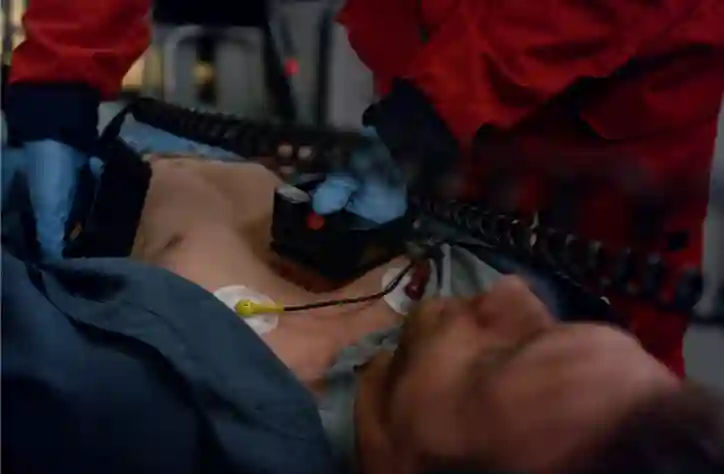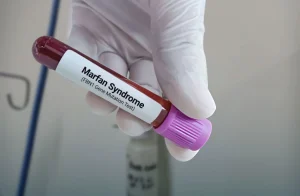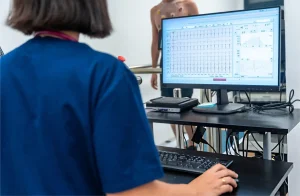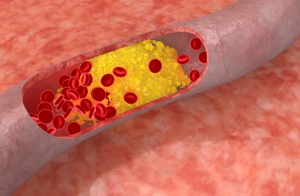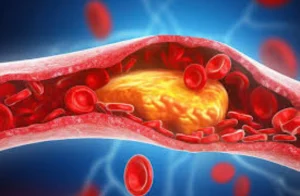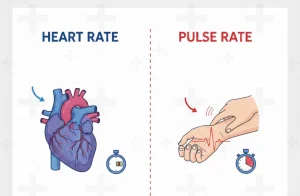Chest pain, shortness of breath, a sudden feeling of doom—these are all terrifying symptoms that can leave us wondering if we’re experiencing a heart attack or cardiac arrest. While both are serious medical emergencies, they are not the same thing.
Understanding the difference between these two conditions is not just a matter of medical trivia—it’s crucial knowledge that can save lives. In this blog post, we’ll break down the key distinctions between heart attacks and cardiac arrest and explore their causes, symptoms, and differences between the two.
By the end of this article, you’ll be armed with the knowledge you need to recognize the signs of each condition and respond appropriately, potentially making the difference between life and death for yourself or someone you love.
What is a Heart Attack?
A heart attack, also known as a myocardial infarction, is essentially a plumbing problem within the heart. It occurs when the flow of blood to the heart muscle is blocked or significantly reduced. This blockage is most often caused by a buildup of plaque (cholesterol, fat, and other substances) in the coronary arteries, the vessels responsible for supplying oxygen-rich blood to the heart.
What Happens During a Heart Attack?
The heart muscle relies on a constant supply of oxygen-rich blood delivered through the coronary arteries. When these arteries become narrowed or blocked, typically due to a buildup of fatty deposits called plaque, the heart doesn’t receive the oxygen it needs.
What are the Symptoms?
The classic symptoms of a heart attack include:
- Chest pain or discomfort: This is often described as a feeling of pressure, squeezing, fullness, or a burning sensation in the center of the chest. The pain can radiate to the arms, back, neck, jaw, or stomach.
- Shortness of breath: This can occur with or without chest pain.
- Cold sweat, nausea, or lightheadedness: These are other common symptoms, especially in women.
Prevent heart problems before they start – Schedule a preventive checkup
Contact UsWhat is A Cardiac Arrest?
Unlike a heart attack, which is a plumbing problem, cardiac arrest is an electrical problem in the heart. It occurs when the heart’s electrical system malfunctions, causing the heart to suddenly stop beating.
What Happens During Cardiac Arrest?
In a normal heartbeat, electrical signals travel through the heart, triggering it to contract and pump blood. During cardiac arrest, these electrical signals become chaotic or stop altogether, preventing the heart from pumping blood effectively.
As a result, blood flow to the brain and other vital organs is cut off, leading to a loss of consciousness and stopping breathing. Without immediate intervention, cardiac arrest is fatal.
What are the Symptoms?
Cardiac arrest often occurs without warning, but some people may experience:
- Sudden collapse and loss of consciousness
- No pulse
- No breathing or abnormal gasping
Recognizing these signs is crucial, as immediate action is needed to save a life.
The Link Between Heart Attack and Cardiac Arrest?
While heart attack and cardiac arrest are distinct conditions, they are often linked in a dangerous way. A heart attack can increase the risk of sudden cardiac arrest, especially in the period shortly after the heart attack occurs or during the recovery process.
Prevent heart problems before they start – Schedule a preventive checkup
Contact UsHow Heart Attack Can Trigger Cardiac Arrest
The damage caused by a heart attack can disrupt the heart’s electrical system, leading to an irregular heartbeat (arrhythmia). A particularly dangerous arrhythmia called ventricular fibrillation, where the heart’s lower chambers quiver chaotically, is a common cause of cardiac arrest in people who have had a heart attack.
While heart attack is a significant risk factor, it’s not the only one. Other heart conditions that can disrupt the heart’s rhythm and lead to sudden cardiac arrest include:
- Cardiomyopathy: A thickened or enlarged heart muscle
- Heart failure: The heart’s inability to pump blood effectively
- Arrhythmias: Irregular heart rhythms, not just ventricular fibrillation
- Long QT syndrome: An inherited condition that affects the heart’s electrical system
Which is More Severe: Heart Attack or Cardiac Arrest?
Both heart attack and cardiac arrest are serious medical emergencies with potentially life-threatening consequences. However, cardiac arrest is generally considered more immediately severe due to its sudden and drastic nature.
Here’s a breakdown of the severity of each condition:
Cardiac Arrest:
- Immediate Threat: Cardiac arrest causes the heart to stop beating entirely, cutting off blood flow to the brain and vital organs within seconds. This leads to a rapid loss of consciousness, absence of breathing, and if not treated immediately, death.
- Time Sensitivity: The survival rate for cardiac arrest decreases dramatically with each passing minute without CPR and defibrillation. Early intervention is absolutely crucial.
Heart Attack:
- Progressive Damage: While a heart attack doesn’t always lead to immediate cardiac arrest, the lack of blood flow to the heart muscle causes progressive damage. The longer it takes to restore blood flow, the more extensive the damage to the heart.
- Potential Complications: Even if a heart attack doesn’t cause immediate death, it can lead to serious complications like heart failure, arrhythmias, and an increased risk of future cardiac arrest.
Heart Attack vs. Cardiac Arrest
| Feature | Heart Attack (Myocardial Infarction) | Cardiac Arrest (Sudden Cardiac Arrest) |
| Underlying Cause | Blockage in a coronary artery, disrupting blood flow to the heart muscle | Electrical malfunction in the heart, causing it to abruptly stop beating |
| Primary Issue | Circulatory problem (lack of blood flow) | Electrical problem (disruption of heart rhythm) |
| Onset | Typically gradual, with symptoms developing over minutes or hours | Often sudden and immediate |
| Symptoms | Chest pain or discomfort, shortness of breath, nausea, cold sweat, lightheadedness | Sudden loss of consciousness, no pulse, no breathing |
| Consciousness | Usually remains conscious, though may experience pain and discomfort | Immediately loses consciousness |
| Primary Treatment | Medications to restore blood flow (e.g., clot-busters), procedures to open blocked arteries (e.g., angioplasty) | Immediate CPR and defibrillation to restart the heart |
| Long-Term Impact | Potential for permanent damage to the heart muscle, increased risk of future heart attacks and cardiac arrest | If successfully resuscitated, potential for neurological damage depending on duration of oxygen deprivation |
Final Words
In conclusion, while both heart attacks and cardiac arrest are serious heart conditions, they are fundamentally different. A heart attack is a circulation problem, while cardiac arrest is an electrical problem. Understanding these differences, recognizing the symptoms, and knowing how to respond quickly can be the difference between life and death.
Remember, time is of the essence in both situations. If you suspect someone is having a heart attack or cardiac arrest, don’t hesitate to call for emergency medical help. By taking swift action, you can help save a life.
For more information about heart health and prevention, consult with your healthcare provider.

